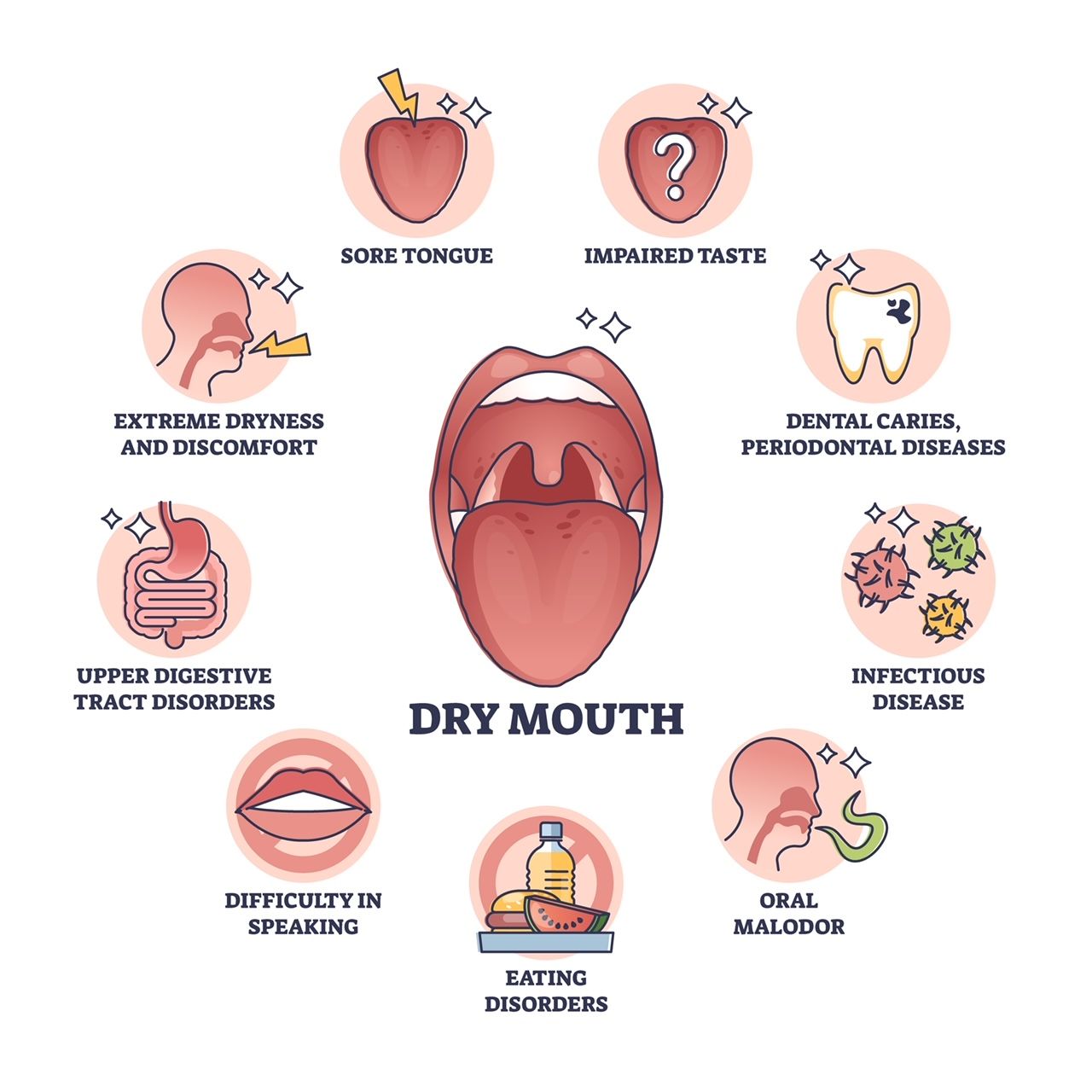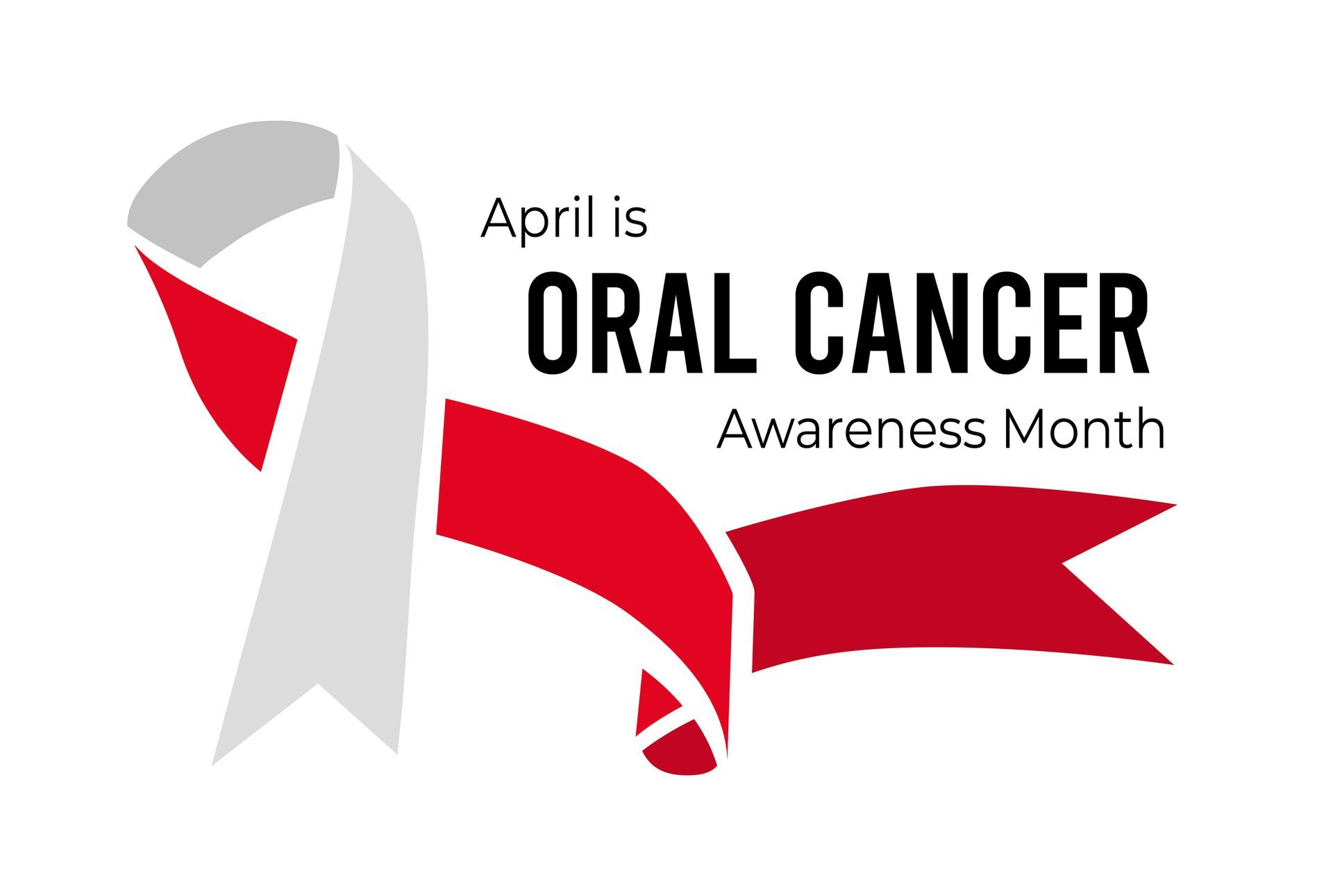Understanding Xerostomia: Causes, Symptoms, and Treatment Options
Xerostomia, commonly known as dry mouth, is a condition that affects many people, yet it’s often overlooked or misunderstood. In this blog article, we will look into what xerostomia is, explore its causes and symptoms, and discuss various ways to manage or treat it.

What is Xerostomia?
Xerostomia is a medical condition characterized by a decrease in saliva production, leading to a dry feeling in the mouth. Saliva is crucial for digestion, oral health, and preventing infection, making xerostomia more than just a discomfort; it can have significant implications for one’s overall health.
Causes of Xerostomia
The causes of xerostomia are varied and can include:
1. Medications: Many common medications, including antihistamines, decongestants, painkillers, and antidepressants, can reduce saliva production.
2. Aging: Although not a direct cause, aging is often associated with conditions and medication use that can lead to dry mouth.
3. Medical Treatments: Treatments like chemotherapy and radiation to the head and neck can damage salivary glands.
4. Health Conditions: Diseases like Sjögren’s syndrome, diabetes, and HIV/AIDS can lead to xerostomia.
5. Lifestyle Factors: Smoking or chewing tobacco can exacerbate dry mouth symptoms.
Symptoms of Xerostomia
Recognizing the symptoms is crucial for early management:
• A persistent dry feeling in the mouth
• Difficulty chewing, swallowing, or speaking
• A sore or burning sensation in the mouth or throat
• Dry or cracked lips
• A dry or rough tongue
• Bad breath
• An increased susceptibility to oral infections

Managing and Treating Xerostomia
While xerostomia can be challenging, there are several strategies to manage and treat it:
1. Stay Hydrated
• Increase Fluid Intake: Drink plenty of water throughout the day to keep the mouth moist.
• Avoid Alcohol and Caffeine: These can contribute to dryness.
2. Stimulate Saliva Production
• Chew Sugar-free Gum: This can stimulate saliva flow.
• Use Saliva Substitutes: Over-the-counter saliva substitutes can help keep the mouth moist.
3. Maintain Good Oral Hygiene
• Brush and Floss Regularly: This is crucial to prevent tooth decay and gum disease.
• Use Fluoride Toothpaste: To protect against cavities.
• Regular Dental Checkups: Essential for monitoring oral health.
4. Adjust Diet and Habits
• Avoid Dry or Salty Foods: These can exacerbate dryness.
• Quit Smoking: Tobacco use can worsen dry mouth symptoms.
5. Medication and Treatment Adjustments
• Discuss Medications with Your Doctor: If medication is the cause, adjusting the dosage or changing the medication can help.
• Explore Prescription Options: There are medications available that can stimulate saliva production.
6. Use a Humidifier
• Add Moisture to the Air: Especially in dry climates or during winter.
Conclusion
Xerostomia can significantly impact quality of life, but with the right strategies, its symptoms can be effectively managed. If you suspect you have dry mouth, it’s important to discuss it with your healthcare provider to identify the underlying cause and develop a suitable treatment plan. Remember, maintaining good oral hygiene and staying hydrated are key steps in managing xerostomia.
By understanding what xerostomia is, its causes and symptoms, and the various ways to treat or manage it, individuals can take proactive steps towards better oral health and overall well-being.




